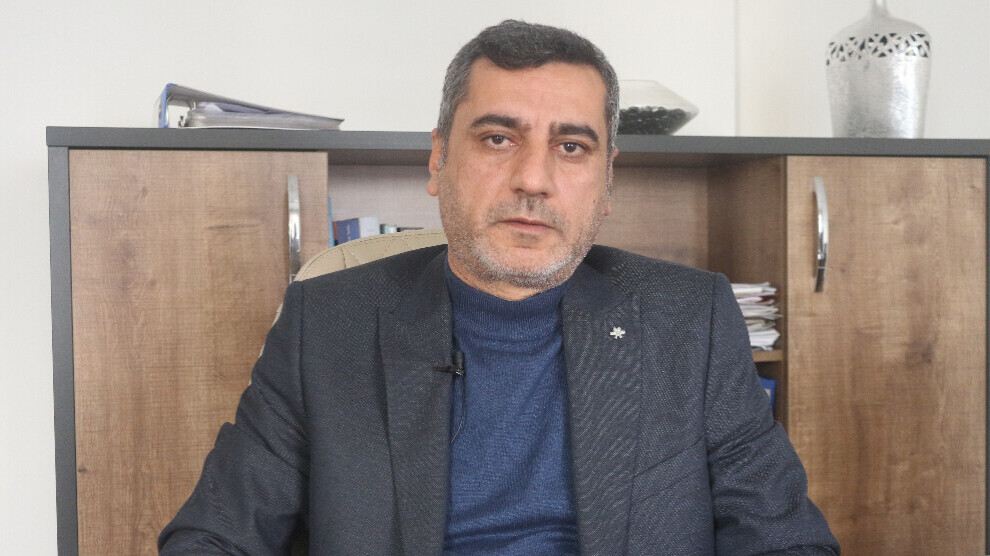Lawyer Deniz: Turkey does not recognize the 'Right to Hope'
Lawyer Mehmet Nuri Deniz said that Turkey does not view the ‘right to hope’ as a legal entitlement. That’s why, he added, " Mr. Öcalan is denied that right."
Lawyer Mehmet Nuri Deniz said that Turkey does not view the ‘right to hope’ as a legal entitlement. That’s why, he added, " Mr. Öcalan is denied that right."

Lawyer Deniz said in this interview with ANF that unless Turkey revises its approach to the Kurdish issue, democracy, human rights, and the rule of law, its stance on the "right to hope," which affects approximately 4,000 prisoners, will remain unchanged.
"Turkey evaluates Mr. Öcalan's legal status on an individual basis and links it to the unresolved Kurdish issue," the lawyer added.
The European Court of Human Rights (ECHR), on 18 March 2014, ruled that Abdullah Öcalan’s sentence of aggravated life imprisonment without the possibility of parole violated Article 3 of the European Convention on Human Rights. The court determined that Öcalan's sentence should be reviewed in line with the "right to hope." However, nearly a decade on, Turkey has taken no action.
Lawyer Deniz said: "The concept of the 'right to hope' first emerged in the 1970s with a ruling by Germany’s Constitutional Court. The ECHR later drew inspiration from this and introduced its own definition of the 'right to hope.'"
Life imprisonment without parole violates human rights
Lawyer Deniz noted that Turkey abolished the death penalty in the early 2000s and replaced it with aggravated life imprisonment, and added: "This sentence entails incarceration under a special regime and isolation for the rest of one's life. The ECHR has ruled that sentencing someone to life imprisonment without any possibility of release violates human rights. It has developed new jurisprudence on the matter, with the Vinter case in the United Kingdom serving as a landmark ruling. This decision established that life imprisonment without the prospect of parole is unlawful and contravenes human rights, forming the basis of the 'right to hope.'"
Turkey rejects the 'Right to Hope'
Referring to the ECHR's decision concerning Kurdish leader Abdullah Öcalan, lawyer Deniz said: "In response to a 2014 application by Mr. Öcalan's lawyers, the ECHR ruled that the 'right to hope' should apply to him. Despite the significant time elapsed since the ruling, Turkey has failed to act. In 2021, following applications by Mr. Öcalan's lawyers and civil society organizations, the Council of Europe’s Committee of Ministers, took up the issue and initiated a monitoring process regarding Turkey. Yet Turkey has not taken any practical steps to implement the 'right to hope.' The monitoring process continues, but Turkey appears unwilling to comply with this decision."
Issue tied to the Kurdish question
Lawyer Deniz underlined that Turkey does not recognize the "right to hope" as an individual legal right, adding that "this is why Mr. Öcalan is denied the 'right to hope.' The core reason is the unresolved Kurdish question, compounded by Turkey's drift away from the rule of law and its lack of a democratic mindset. Unless these systemic issues are addressed, it is clear that Turkey does not approach the matter from a legal standpoint and has no intention of implementing the ruling.
A change in the political climate could prompt progress, but for now, Turkey is assessing Mr. Öcalan's legal status in isolation and links it to the broader Kurdish question. As long as Turkey's stance on the Kurdish question, democracy, human rights, and the rule of law remains unchanged, its approach to this matter is unlikely to shift.
The 'right to hope' currently applies to more than 4,000 prisoners. To ensure this right is recognized in Turkish law, sustained legal, political, diplomatic, and societal efforts must keep the issue at the forefront of public discourse."